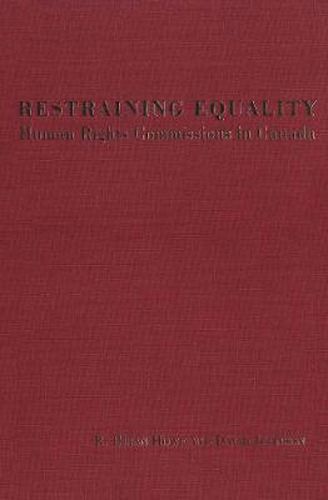Readings Newsletter
Become a Readings Member to make your shopping experience even easier.
Sign in or sign up for free!
You’re not far away from qualifying for FREE standard shipping within Australia
You’ve qualified for FREE standard shipping within Australia
The cart is loading…






Restraining Equality addresses the contemporary financial, social, legal, and policy pressures currently experienced by human rights commissions across Canada. Through a combination of public policy analysis, historical research, and legal analysis, R.Brian Howe and David Johnson trace the evolution of human rights policy within this country and explore the stresses placed on human rights commissions resulting from greater fiscal restraints and society’s rising expectations for equality rights over the past two decades.
The authors analyse sources of these tensions in relation to the delivery of equality rights in both federal and provincial jurisdictions since the Second World War. Through a series of interviews with human rights commission officials and a survey of advocacy groups, business organizations, and human rights staff the authors explore the performance and the internal workings of these. Howe and Johnson also analyse human rights commissions in light of the theoretical literature and empirical data, and discuss the political and legal contexts in which the commissions operate, and the reform measures that have been implemented.
$9.00 standard shipping within Australia
FREE standard shipping within Australia for orders over $100.00
Express & International shipping calculated at checkout
Restraining Equality addresses the contemporary financial, social, legal, and policy pressures currently experienced by human rights commissions across Canada. Through a combination of public policy analysis, historical research, and legal analysis, R.Brian Howe and David Johnson trace the evolution of human rights policy within this country and explore the stresses placed on human rights commissions resulting from greater fiscal restraints and society’s rising expectations for equality rights over the past two decades.
The authors analyse sources of these tensions in relation to the delivery of equality rights in both federal and provincial jurisdictions since the Second World War. Through a series of interviews with human rights commission officials and a survey of advocacy groups, business organizations, and human rights staff the authors explore the performance and the internal workings of these. Howe and Johnson also analyse human rights commissions in light of the theoretical literature and empirical data, and discuss the political and legal contexts in which the commissions operate, and the reform measures that have been implemented.